
2007 Lifetime Achievement Award Recipients
John Dawson 1906
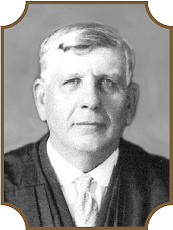 John Dawson, 1906, was one of 18 regular first-year students at Washburn University School of Law in 1903 and graduated from the School of Law in the first class of 1906. Dawson was one of seven of Washburn's first entering class, who were already lawyers upon entering law school. At the time, he was 34 years old and had been admitted to the bar in 1898 in Wakeeney, Kansas, after reading law in a law office in Hill City. Dawson came to Topeka in 1899 to be bond clerk for the State Treasurer, and near enrollment day in 1903, became chief clerk in the Attorney General's office. He was named assistant attorney general in 1904 and served until 1908. In 1909, he served as private secretary to Governor W.R. Stubbs for six months. Dawson left that position to become attorney for the State Railroad Commission. In 1910, he was elected attorney general and again in 1912. In 1914 Dawson served as president of the National Association of Attorney's General. Dawson was elected to the Kansas Supreme Court in 1914. He was the first graduate of any Kansas law school to sit on the court. Dawson served the Kansas Supreme Court for 30 years, then the third longest term in the Court's history. He served as Chief Justice from 1937 to 1945 and retired at age 70.
John Dawson, 1906, was one of 18 regular first-year students at Washburn University School of Law in 1903 and graduated from the School of Law in the first class of 1906. Dawson was one of seven of Washburn's first entering class, who were already lawyers upon entering law school. At the time, he was 34 years old and had been admitted to the bar in 1898 in Wakeeney, Kansas, after reading law in a law office in Hill City. Dawson came to Topeka in 1899 to be bond clerk for the State Treasurer, and near enrollment day in 1903, became chief clerk in the Attorney General's office. He was named assistant attorney general in 1904 and served until 1908. In 1909, he served as private secretary to Governor W.R. Stubbs for six months. Dawson left that position to become attorney for the State Railroad Commission. In 1910, he was elected attorney general and again in 1912. In 1914 Dawson served as president of the National Association of Attorney's General. Dawson was elected to the Kansas Supreme Court in 1914. He was the first graduate of any Kansas law school to sit on the court. Dawson served the Kansas Supreme Court for 30 years, then the third longest term in the Court's history. He served as Chief Justice from 1937 to 1945 and retired at age 70.
In 1945, Dawson began serving as the governors Pardon and Patrol attorney. He served in that position for 10 years, for 4 governors.
Dawson was a part-time Lecturer at the School of Law from 1909 to 1917. In 1927, Dawson received an Honorary Doctor of Law degree from Washburn University and received the Distinguished Service Award in 1949 from the Washburn Alumni Association.
John Dawson died February 19, 1960 at the age of 90.
Clifford Hope Sr. 1917
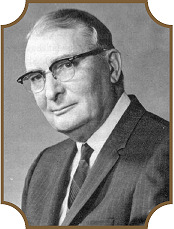 Clifford Hope Sr., 1917, graduated from Washburn Law in 1917, and served as class president. He was admitted to the bar that same year.
Clifford Hope Sr., 1917, graduated from Washburn Law in 1917, and served as class president. He was admitted to the bar that same year.
Hope served during WWI as a second lieutenant with the thirty-fifth and eighty-fifth divisions in the United States and France from 1917 to 1919. After the service, Hope entered private practice in Garden City, Kan. From 1921 to 1927, Hope was a member of the Kansas House of Representatives; he served as speaker pro tempore in 1923, and then speaker in 1925, at the age of 31. Hope was elected to the 70th Congress as a Republican, and served from 1927 to 1957. He was elected to the Committee on Agriculture during his first term and was chairman of that committee in the 80th Congress. Beginning in 1932 he was the ranking Republican member of that committee.
During his congressional tenure Hope also served on the committee on post war economic policy and planning of the 78th Congress; the republican steering and congressional committee; and was chairman of the republican conference. Hope was the U.S. delegate to the Conference of the Interparliamentary Union at Stockholm, Sweden in 1949. He was congressional advisor to the U.S. delegation to the Inter-American Conservation Conference in Denver, Colo., in 1948. In 1945, Hope was appointed as one of the legislative advisors to the first Food and Agriculture Conference of the United Nations held in Quebec and was subsequently appointed in that capacity to each of its annual meetings.
After Bob Dole, Hope has the longest tenure of any other Washburn Law graduate in Congress.
Hope served for 30 years in Congress, including four years as chair of the house agriculture committee. He served in the Kansas Legislature from 1919 to 1925 and as the Kansas Representative to Congress from 1927 to 1957. He practiced law for many years in Garden City, and was senior member of the firm then known as Hope, Haag, Saffels & Hope.
In 1951 Hope received the Distinguished Service Award from the Washburn Alumni Association.
Hope's son, Clifford R. Hope, Jr., graduated from Washburn Law in 1950. Clifford Hope Sr. died May 16, 1970, at the age of 76.
Marie Russell 1925
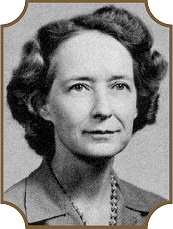 Marie Russell, 1925, came from a family of lawyers. Russell earned her A.B. degree from Kansas University plus the equivalent of one year's law school work. She graduated cum laude from Washburn Law in 1925. She was admitted to the Kansas bar that same year. Russell earned a Masters degree in Social and Economic Research from Simmons College in Boston.
Marie Russell, 1925, came from a family of lawyers. Russell earned her A.B. degree from Kansas University plus the equivalent of one year's law school work. She graduated cum laude from Washburn Law in 1925. She was admitted to the Kansas bar that same year. Russell earned a Masters degree in Social and Economic Research from Simmons College in Boston.
Russell stayed at Washburn Law for one year as assistant to the Dean of the Law School and law librarian. She helped Dean Harry K. Allen with research for a book he was writing on real property. She then took a position with The Farm Mortgage Trust Company in Topeka, Kansas. Russell left that position to become state law librarian and stayed at the library the rest of her working life, a period of over 40 years. In 1928, Russell started what turned into a 30 year stretch of part-time teaching at Washburn Law, and was the first woman lecturer at Washburn Law. Russell taught common law pleading and conflict of laws.
After retirement from the State Library, Russell traveled extensively. She also maintained her interest in and attendance at bar meetings, institutes, and the various clubs and organizations of which she was an active member.
The School of Law has the Marie Russell Law School Scholarship. Marie Russell died April 28, 1981, at the age of 82.
Delmas Hill 1929
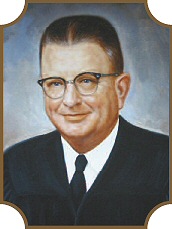 Delmas Hill, 1929, received his undergraduate degree in 1926 from Washburn University and his law degree in 1929, from Washburn University School of Law.
Delmas Hill, 1929, received his undergraduate degree in 1926 from Washburn University and his law degree in 1929, from Washburn University School of Law.
Judge Hill was a United States District Judge appointed by President Truman in 1949, and is the only Washburn Law graduate to sit on the United States Court of Appeals, appointed by President Kennedy in 1961.
Hill was admitted to the Kansas bar in 1929 and began practicing law in Wamego, Kansas. In 1930, Hill was a candidate for County Attorney and won the election. He was reelected in 1932. In 1934, Hill was appointed assistant United States attorney for the District of Kansas. He retained that position until 1936. Hill was appointed Tax Attorney for the Kansas State Tax Commission by Governor Huxman. After Huxman was defeated in the next election, Hill resumed his private practice in Wamego. Hill enlisted as a private in WWII. He was appointed to the Army Judge Advocate Training center, graduated in the top 10 percent of his class, and was commissioned as a first Lieutenant. A military commission was created to charge Japanese personnel on crimes that violated the Laws of War. Hill helped prosecute General Yamashita, Commanding General in the Philippine Islands. Hill represented the prosecution in front of the Philippine Supreme Court and the United States Supreme Court. From General Douglas MacArthur, Captain Delmas Hill was granted a Bronze Star for his achievements.
After WWII, Hill returned again to private practice in Wamego. In 1946 he became State Chairman of the Kansas Democratic Party. Hill worked in the 1948 presidential campaign for Harry Truman. In October 1949, President Truman nominated Hill to become the United States District Judge for the District of Kansas. He was confirmed without incident. Judge Hill along with Chief Judge Arthur Mellott, had an enormous case load. It is reported they disposed of twice as many cases as any federal judge nationwide, at the time.
Upon Judge Mellott's death, Hill was appointed Chief Judge of the Kansas District Court. In 1961, the membership of the Court of Appeals for the Tenth Circuit was enlarged along with a new position for a third district judge in Kansas by Congress. In September 1961, President Kennedy nominated Hill to fill the new position on the Circuit Court. Again, Hill was confirmed without incident. For 16 years, Hill was a circuit judge on the appellate court. Hill took senior status in 1977.
Hill was a loyal supporter of the School of Law and the Kansas Room at the law school is named in his honor. He was instrumental in fundraising for the law school following the 1966 tornado and endowed one of the school's first significant scholarships, the Delmas C. Hill Law Scholarship Fund. The scholarship fund gives a law student full resident tuition plus a stipend of $2,000 a year for three years. Hill served on the Washburn Law School Association Board of Governors in 1969, 1970 and 1974. He received an Honorary Doctor of Law Degree in 1958 from Washburn University School of Law. Hill also served for 20 years as a member of the Washburn University Board of Trustees.
Delmas Hill died December 2, 1989, at the age of 80.
Richard Donnelly 1938
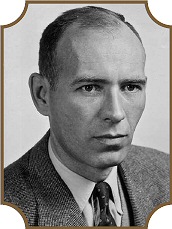 Richard Donnelly, 1938, graduated from Washburn University with a Bachelor of Arts in 1936 and with a law degree from Washburn Law in 1938. He received a JSD from Yale Law School in 1949.
Richard Donnelly, 1938, graduated from Washburn University with a Bachelor of Arts in 1936 and with a law degree from Washburn Law in 1938. He received a JSD from Yale Law School in 1949.
Donnelly was admitted to practice in Kansas in 1938 and began private practice. He served as attorney for the Federal Land Bank of Wichita, from 1938 to 1942. For three years, he served in WWII. Donnelly's first teaching assignment was with Washburn Law from 1946 to 1947. From 1947 to 1948 he was the Sterling Fellow at Yale Law School. Donnelly accepted the position of associate professor of law at the University of Virginia in 1948 and taught there until 1950. He joined Yale Law School in 1950 as associate professor of Law. In 1953 he became professor of law and served in that capacity until his death in June 1966. At Yale, Donnelly taught criminal law, criminal procedure, evidence, and law and psychiatry. Donnelly's specialty was criminal law. His colleagues at Yale described him as, "One of the earliest members of a small but well respected band of innovators who brought to the study of the criminal process the range of insights to be found in the disciplines of psychiatry, psychology and sociology. Through his teachings and writings he imparted to his students his deep concern for the welfare and rehabilitation of society's offenders." Donnelly was the Simeon E. Baldwin Professor of Law at Yale. He was the lead author of a 1962 Criminal Law textbook and authority on mental health law.
Donnelly is the only Washburn Law graduate to teach at both the University of Virginia and at Yale. Donnelly died June 1966.
Jack Campbell 1940
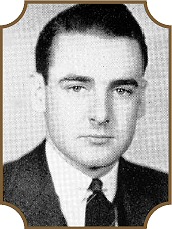 Jack Campbell, 1940, attended Washburn University and received both a Bachelor of Arts in 1938 and graduated magna cum laude with his Juris Doctor in 1940. Campbell was the Governor of New Mexico serving two, two-year terms from 1963 through 1967. Campbell's re-election in 1964 with 60 percent of the vote is still a record for gubernatorial elections in the state of New Mexico. Not long after being elected governor, Campbell carried out a campaign promise and set off a dynamite blast to begin construction of a bridge over the Rio Grande Gorge near Taos. In 1996, the state dedicated the Jack M. Campbell Highway — U.S. 64 from Taos to Tierra Amarilla — in recognition of his efforts in the 1960s to build the Rio Grande Gorge Bridge and complete U.S. 64 across northern New Mexico.
Jack Campbell, 1940, attended Washburn University and received both a Bachelor of Arts in 1938 and graduated magna cum laude with his Juris Doctor in 1940. Campbell was the Governor of New Mexico serving two, two-year terms from 1963 through 1967. Campbell's re-election in 1964 with 60 percent of the vote is still a record for gubernatorial elections in the state of New Mexico. Not long after being elected governor, Campbell carried out a campaign promise and set off a dynamite blast to begin construction of a bridge over the Rio Grande Gorge near Taos. In 1996, the state dedicated the Jack M. Campbell Highway — U.S. 64 from Taos to Tierra Amarilla — in recognition of his efforts in the 1960s to build the Rio Grande Gorge Bridge and complete U.S. 64 across northern New Mexico.
Campbell went to New Mexico from Kansas in 1940. From 1940 to 1941 he worked at the law firm of Reid & Iden in Albuquerque. In 1941, he became a special agent for the FBI in Washington D.C. and Los Angeles, Calif. From 1943 to 1946, Campbell was in the U. S. Marine Corps, First Lieutenant, Rifle Platoon Leader in the Third Marine Division, and participated in landings on Bougainville, Guam and Iwo Jima, where he also served as executive officer for the Division Chief of Staff. After the Marines, Campbell was a member of the law firm of Atwood, Malone & Campbell in Roswell, NM. From 1953 to 1963 he was in partnership with John F. Russell in Roswell. Campbell was a state representative from 1955 to 1962, serving as Speaker of the House from 1961 to 1962. After serving as governor, he practiced law in Santa Fe and became a leading lobbyist, particularly for the oil and gas industry, at the Capitol. He was a member in the law firms of Stephenson, Campbell & Olmsted and Olmsted & Cohen from 1967 to 1972. In 1973, Campbell founded the law firm of Campbell, Bingaman & Black and worked there until he retired in 1991. The firm represented numerous oil companies over the years before legislative committees and district and state courts. Campbell played a major role in the development of the carbon dioxide fields of northeastern New Mexico.
Campbell received the Pete Porter Award for Excellence in Public Service from the New Mexico Oil & Gas Association in 1996; the National Aeronautics and Space Administration (NASA) Distinguished Public Service Award in 1974; received an Honorary Doctorate of Science degree from New Mexico Institute of Mining and Technology; and a Doctor of Laws from New Mexico State University, University of Albuquerque, College of Santa Fe. In 1965 Campbell received the Distinguished Service Award from the Washburn Law School Association on the 25th anniversary of his law school class.
Campbell was remembered for improving services for the mentally ill and reducing partisan politics in filling state jobs, he also appointed New Mexico's first science adviser, reflecting his interest in science and technology.
Jack Campbell died June 14,1999, at the age of 82.
Jerry Michaud 1951
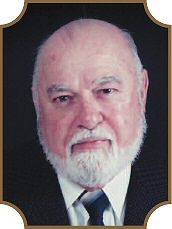 Gerald Michaud, 1951, attended Washburn University where he earned his bachelor's degree in 1949 and his law degree in 1951. He graduated cum laude from law school and was on the Board of the Law Review. Michaud is known as a world-class medical malpractice lawyer whose career includes numerous ground breaking cases. Some of those cases include: proving benzene caused cancer which won a $34 million verdict against Texaco; proving birth control pills caused strokes, kidney disease, heart disease, blood clots and hair loss, and forcing drug companies to reformulate the pills with less estrogen; and proving super-absorbent tampons caused toxic shock syndrome and winning an $11 million verdict from International Playtex in the 1983 death of a Wichita woman. The company voluntarily recalled the product two weeks after the trial and changed it to make it safer.
Gerald Michaud, 1951, attended Washburn University where he earned his bachelor's degree in 1949 and his law degree in 1951. He graduated cum laude from law school and was on the Board of the Law Review. Michaud is known as a world-class medical malpractice lawyer whose career includes numerous ground breaking cases. Some of those cases include: proving benzene caused cancer which won a $34 million verdict against Texaco; proving birth control pills caused strokes, kidney disease, heart disease, blood clots and hair loss, and forcing drug companies to reformulate the pills with less estrogen; and proving super-absorbent tampons caused toxic shock syndrome and winning an $11 million verdict from International Playtex in the 1983 death of a Wichita woman. The company voluntarily recalled the product two weeks after the trial and changed it to make it safer.
Michaud's illustrious career began in 1959, 8 years after graduating from law school, when he won a law suit on behalf of a woman who had become deaf as a result of an allergic reaction to a tetanus shot.
Michaud's law career consisted of representing the underdog and helping those who needed help but couldn't help themselves. Michaud retired in 1995. In 2002, he came out of retirement for a short time to help his daughter Cameron Michaud-Drumright in her law career after graduating from Washburn Law.
Michaud never forgot Washburn University. He and his law firm, Michaud, Cordry, Michaud, Hutton & Hutton, made a generous contribution of $1,000,000 to establish an endowed chair at Washburn – the Ahrens Chair in Tort Law in 1986. Michaud named the chair after Professor Emeritus James R. Ahrens, his former law school professor.
Michaud was a noted presenter at the school on numerous occasions and was a distinguished speaker at the Ahrens Tort Symposium in 1996. He served on the Washburn Law School Association Board of Governors from 1986 to 1989 and again from 1991 to 1994. He received the Distinguished Service Award from the Washburn Law School Association in 1997 and received an Honorary Doctor of Laws degree from Washburn University in 1986. He also received the Washburn University President's Award in 1997 for recognition of his work on behalf of higher education.
Michaud and his wife Shannon were generous to Washburn Law in other ways as well. In 1996, they gave Washburn Law the "Wings of Freedom" by Sandy Scott. The 4,000 pound bronze eagle sculpture has a 22 foot wing span and is located on the northwest lawn of the Law School. In 2000, he donated a bronze sculpture of Benjamin Franklin by George Lundeen, which sits on the south side of the Law School. In 2002, Michaud donated another sculpture, Thomas Jefferson drafting the Declaration of Independence, also by Lundeen. This piece was given to commemorate the graduation of Michaud's daughter and son-in-law, Cameron and Greg Dumright, both from Washburn Law.
Michaud was a member of the Inner Circle of Advocates, an invitation-only group limited to 100 lawyers nationwide. He was active in many organizations including: Wichita, Kansas and American Bar Associations; Wichita Trial Lawyers Association (president, 1971 to 1973); Kansas Trial Lawyers Association (Board of Governors 1964; vice-president 1968 to 1972; president 1975 to 1980; chairman Continuing Legal Education Committee 1979 to 1980); The Association of Trial Lawyers of America (Medical Professional Liability Committee 1971 to 1980, Board of Governors 1985); charter member, Kansas Chapter, American Board of Trial Advocates (president 1974 to 1975); founding member, American Board of Professional Liability Attorneys; diplomat, American Board of Trial Advocates; International Society of Barristers; and International Academy of Trial Lawyers. Michaud received the Kansas Trial Lawyers Association Distinguished Service Award in 1998.
Michaud spent his career working as an advocate and supporter of his clients, Washburn University and Washburn Law. Michaud died July 18, 2005, at the age of 76.
Senator Robert J. Dole 1952
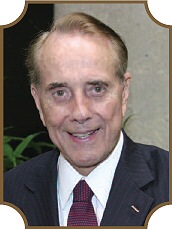 Senator Robert J. Dole, 1952, received his A.B. from Washburn University and his law degree from Washburn University School of Law in 1952.
Senator Robert J. Dole, 1952, received his A.B. from Washburn University and his law degree from Washburn University School of Law in 1952.
Senator Dole is currently special counsel at Alston & Bird, L.L.P. in Washington, DC. In 2007, Senator Dole was appointed as the co-chairman of the newly-created White House President's Commission on Care for America's Returning Wounded Warriors.
During WWII, Dole served in the U.S. Army as a Second Lieutenant and platoon leader with the 10th Mountain Division in the Allied liberation of Northern Italy. He was severely wounded in the mountains of Italy in 1945 and spent 39 months recovering in hospitals. He served from June 1943 and was honorably discharged as a Captain in July 1948.
In 1950, while a student at Washburn Law, Senator Dole was elected to the Kansas Legislature and served in the House of Representatives until 1953. From 1952 to 1960, he was elected to four consecutive terms as Russell County Attorney.
Dole was first elected to the United States House of Representatives in 1960. He was re-elected and served until 1968. He was then elected to the United States Senate in 1968 and was consistently re-elected and served until 1996. Dole was elected Senate Majority Leader in 1984 and served four consecutive Congresses as Senate Republican leader until he retired from the Senate in 1996. From 1971 to 1973, Senator Dole served as chairman of the Republican National Committee.
Presidential candidate Gerald Ford asked Dole to be his running mate for vice president of the United States in 1976. Dole ran for president of the United States in 1988 and 1996.
Dole's public service has included prominent appointments including: advisor, U.S. Delegation to the United Nations Food and Agriculture Organization, 1965, 1968, 1974, 1975, 1977, 1979; advisor, President's Delegation to Study the Food Crisis in India, 1966; advisor, U.S. Delegation to Study the Arab Refugee Problem, 1967; member, U.S. National Commission for the United Nations Educational, Scientific, and Cultural Organization, 1970, 1973; member, Commission on Security and Cooperation in Europe, 1977; and member, National Commission on Social Security Reform, 1983.
Dole served as the national chairman of the World War II Memorial Campaign from 1997 to 2004; chaired the International Commission for Missing Persons investigating ethnic cleansing in the former Yugoslavia; served as president of the influential Federal City Council in Washington, D.C.; and after September 11, along with former President Bill Clinton, co-chaired the Families of Freedom Scholarship Fund, which raised over $120 million. Dole serves as chairman of the board of The Dole Foundation, which he established in 1983 to advance educational and workforce opportunities for the disabled.
Dole served as a Washburn Endowment Association Trustee from 1987 to 1998 when he became Trustee Emeriti. He received the Distinguished Service Award from the Washburn Alumni Association in 1966; an Honorary Doctor of Law Degree from Washburn University 1969; and the Washburn University School of Law Alumni Association Distinguished Service Award in 1981. In March 2004, Dole gave the keynote address at the Washburn University School of Centennial Celebration Black-Tie Gala.
Some of the many honors Dole has received include: Distinguished Kansan Award in 1976 from the Native Sons and Daughters of Kansas; the Citation of Distinguished Statesmanship in 1984 from the Native Sons and Daughters of Kansas; the Phil Lewis Medal of Distinction Award from the Kansas Bar Association in 1986; Presidential Medal of Freedom, 1997, the nation's highest civilian honor for meritorious contributions to the interest of the United States; Kansan of the Year by the Native Sons and Daughters of Kansas in 2004; the Golden Medal of Freedom in 2004 from the President of Kosova; the Distinguished Service Medal, American Legion; the Teddy Roosevelt Award from the National Collegiate Athletic Association; the Horatio Alger Award from The Horatio Alger Association of Distinguished Americans; and the U.S. Defense Department’s Distinguished Public Service Award. Of note, Dole is the only person to receive all three awards from the Native Sons and Daughters of Kansas.
Dole established The Honorable Robert J. Dole Scholarship Fund for Law Students with Disabilities, at the School of Law. The fund provides assistance to students with disabilities for tuition, books and other special needs.
Sherman Parks 1955
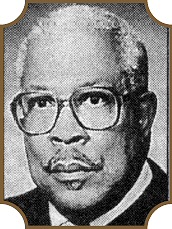 Sherman Parks, 1955, received his Bachelor of Business Administration from Washburn University in 1949 and his Juris Doctor from Washburn Law in 1955.
Sherman Parks, 1955, received his Bachelor of Business Administration from Washburn University in 1949 and his Juris Doctor from Washburn Law in 1955.
Parks was appointed to the Kansas State Court of Appeals by Governor Robert F. Bennett in 1977 and served on the court until his retirement in 1987. He was the first black appellate judge in Kansas and the highest ranking black judicial officer in the state. Parks also was the first black adjunct faculty member to teach at Washburn Law.
After graduation Parks began his career as an assistant attorney for Shawnee County, serving in that capacity from 1961 to 1966. In 1966, he became the attorney general assigned to the Alcohol Beverage Control Division and maintained that position until 1968. From 1968 to 1971, he was the assistant attorney general, and from 1971 to 1977 was the chief counsel for the Secretary of State's office.
Long interested in education, Parks was a member of the Washburn University Board of Regents and served as chair from 1971 to 1972. He was an adjunct professor at Washburn University School of Law teaching criminal law and criminal procedure. He was a member of the Washburn Law School Association Board of Governors, serving in 1969 to 1970, 1984 to 1987 and 1989 to 1992. Parks received the Washburn University Alumni Association Distinguished Service Award in 1987 and an Honorary Doctor of Laws degree from Washburn University in 1990. Parks served as the chairman of the Kansas Republican's Veterans Club and as president of the Topeka Council of Parents-Teachers Association. In 1988, Parks received the Martin Luther King Jr. award from the Living the Dream Council.
Parks son, Sherman A. Parks, Jr., also graduated from Washburn Law in 1975. Sherman Parks Sr. died April 8, 1996, at the age of 72.
Delano Lewis 1963
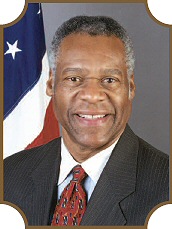 Delano Lewis, 1963, received a Bachelor of Arts in Political Science in 1960 from the University of Kansas and his law degree from Washburn University School of Law in 1963. After graduating from Washburn Law, Lewis began his career in the federal government, first as an attorney with the Department of Justice and later with the U.S. Equal Employment Opportunity Commission. He then became associate director of the U.S. Peace Corps in Nigeria and country director of the U.S. Peace Corps in Uganda. He was legislative assistant to Senator Edward W. Brook of Massachusetts and chief of staff for Delegate Walter Fauntroy of the District of Columbia.
Delano Lewis, 1963, received a Bachelor of Arts in Political Science in 1960 from the University of Kansas and his law degree from Washburn University School of Law in 1963. After graduating from Washburn Law, Lewis began his career in the federal government, first as an attorney with the Department of Justice and later with the U.S. Equal Employment Opportunity Commission. He then became associate director of the U.S. Peace Corps in Nigeria and country director of the U.S. Peace Corps in Uganda. He was legislative assistant to Senator Edward W. Brook of Massachusetts and chief of staff for Delegate Walter Fauntroy of the District of Columbia.
His career in the telecommunication industry began in 1973, when he joined C&P Telephone Company, a subsidiary of AT&T. Lewis remained with C&P Telephone Company until 1984 when he joined Bell Atlantic (now Verizon). In 1994, he retired from Bell Atlantic as president and CEO of the company’s District of Columbia operations. Later that same year he was asked to take the helm of National Public Radio (NPR) in Washington, D.C., as president and CEO.
After five years with NPR, Lewis retired, continuing to serve on the Boards of Colgate Palmolive Company, Eastman Kodak, The Haliburton Co., and Black Entertainment Television.
In June 1999, President Clinton nominated Lewis to be the first United States Ambassador to The Republic of South Africa, and the Senate confirmed him that November, the same year the Topeka Capital-Journal named him Kansan of the Year.
Lewis received the Distinguished Service Award from the Washburn University School of Law Alumni Association in 2003.
In July 2001, Lewis retired from diplomatic service, and he now resides in New Mexico. He is president and CEO of his communications consulting practice, Lewis & Associates, in Las Cruces. He consults with and lectures for many groups and organizations including, Amoco Oil Co., The African American Group of Lincoln Life Insurance Co., and The Developmental School’s Foundation.
He received an Honorary Doctor of Human Letters in 1992 from Queens College, in 1994 from Barry University, in 1995 from Kent State University, and in 1996 from Lafayette College; an Honorary Degree — General in 1988 from Marymount College and in 1997 from Nova University; an Honorary Doctor of Fine Arts in 1997 from Southern Illinois University; an Honorary Doctor of Law in 2000 from Washburn University; and a Doctor of Public Service in 1991 from George Washington University.
The Honorable Kay McFarland 1964
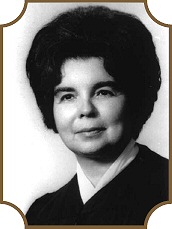 The Honorable Kay McFarland, 1964, graduated magna cum laude from Washburn University with dual majors in English and history-political science in 1957. She graduated from Washburn University School of Law in 1964 and was admitted to the Kansas Bar the same year. Justice McFarland is Chief Justice of the Kansas Supreme Court, a position she has held since 1995. She is the first woman to serve in that capacity. Her career has been a remarkable series of "firsts."
The Honorable Kay McFarland, 1964, graduated magna cum laude from Washburn University with dual majors in English and history-political science in 1957. She graduated from Washburn University School of Law in 1964 and was admitted to the Kansas Bar the same year. Justice McFarland is Chief Justice of the Kansas Supreme Court, a position she has held since 1995. She is the first woman to serve in that capacity. Her career has been a remarkable series of "firsts."
Following law school, McFarland was in private practice in Topeka until 1971, when she challenged the incumbent judge of the Shawnee County probate and juvenile courts and won the election. McFarland delivered the court reforms pledged in her campaign and reduced serious juvenile offenses by more than half in the two years she held that office. McFarland was the first woman elected to a judgeship in Shawnee County. In 1973, she became judge of the newly created Fifth Division of the District Court in Topeka, thereby becoming the first woman to be a district judge in the history of Kansas. Her election to this office came after her victories over opponents in both the primary and general elections. McFarland was appointed by the governor to be a justice of the Kansas Supreme Court in 1977, and she remained the only woman to hold that office until fellow Washburn Law alumnae Marla Luckert, joined her on the bench of the Kansas Supreme Court in January 2003. In 1995, upon the retirement of fellow alum Chief Justice Richard W. Holmes '53, McFarland became Chief Justice of the Kansas Supreme Court, the first woman ever to hold that position.
McFarland received the Washburn University Alumni Fellow Award for the School of Law in 2005 and the Distinguished Alumni Award from the Washburn University School of Law Alumni Association in 2006. McFarland received the first Chief Justice Kay McFarland Award from the Women Attorneys Association of Topeka, given in honor of her professional excellence and commitment to service.
William H. Kurtis 1966
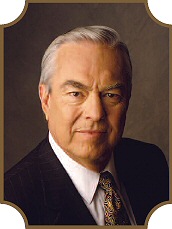 William H. Kurtis, 1966, received his Bachelor of Science in Journalism from the University of Kansas in 1962 and his Juris Doctor from Washburn University School of Law in 1966. Kurtis served in the U.S. Marine Corps from 1962 to 1963.
William H. Kurtis, 1966, received his Bachelor of Science in Journalism from the University of Kansas in 1962 and his Juris Doctor from Washburn University School of Law in 1966. Kurtis served in the U.S. Marine Corps from 1962 to 1963.
In 1966, Kurtis was working for WIBW TV part-time while attending Washburn Law. He provided coverage of the tornado that ripped through Topeka, leaving 16 dead and hundreds injured. After learning of the dangerous weather, Kurtis shouted a warning that became synonymous with the deadly twister: "For Gods sake, take cover." He remained on the air to cover the destruction for 24 hours straight. Kurtis received national attention for his coverage of the tornado and is credited with saving many lives.
Kurtis is an acclaimed documentary host and producer, network and major market news anchor and multimedia production company president.
In 1973, Kurtis teamed up with Walter Jacobson and over the next nine years, made Chicago television history. In the process, Kurtis initiated several innovative practices which became standards for the business today, including local “foreign correspondent” reports from the field and his "Focus" unit investigations. Kurtis became the first foreign correspondent for CBS affiliate WBBM reporting from Vietnam, Northern Ireland, and Africa.
Kurtis covered such notable stories as the Richard Speck murders and the Charles Manson trial. He is also credited with breaking the Agent Orange story and the story of Amerasian Children in Vietnam.
In 1982, he co-anchored the CBS Morning News with Diane Sawyer, where for three and-a-half years he completed a series of hour-long documentaries for the prestigious CBS Reports. In 1985, Kurtis began his career as a documentarian, for the Peabody Award-winning series The New Explorers, which aired on PBS. In 1990, he founded Kurtis Productions and began producing programs for the A&E Television Network, including Investigative Reports, American Justice, and Cold Case Files.
Kurtis is executive producer of Cold Case Files, the original forensic series, which began in 1998 as a sub-strand of the Emmy® Award-winning Investigative Reports. Since 1992, Kurtis has been the anchor of A&E's American Justice.
For over ten years, Kurtis was executive producer and anchor of Investigative Reports, the longest running series on television. Investigative Reports was the recipient of several awards, including the Thurgood Marshall Journalism Award for the Kurtis-produced program, Death Penalty on Trial. In this series, Kurtis presented some of the most talked-about news-based documentaries on television over the past decade, including the five-part The Men Who Killed Kennedy; the two-hour Newt Gingrich and the Republican Revolution; the four-part special, Naked News; and The Secret Tapes of Richard Speck, a controversial exposé of lax conditions in the Illinois prison system that resulted in statewide prison reform.
Kurtis is also executive producer of the weekly series, Investigating History, airing on The History Channel.
Kurtis received an Honorary Doctor of Literature from Washburn University in 1985; the Distinguished Service Award from the Washburn Law School Association in 1999; the Distinguished Service Award from the Washburn Alumni Association in 1982; was the keynote speaker at the 30th anniversary of the Topeka tornado, June 8, 1996; and served on the Washburn Law School Association Board of Governors from 1977 to 1978.
Kurtis created the Media and Entertainment Law Fund at the Law School, which benefits students who support law school programs relating to media and/or entertainment law at Washburn Law.